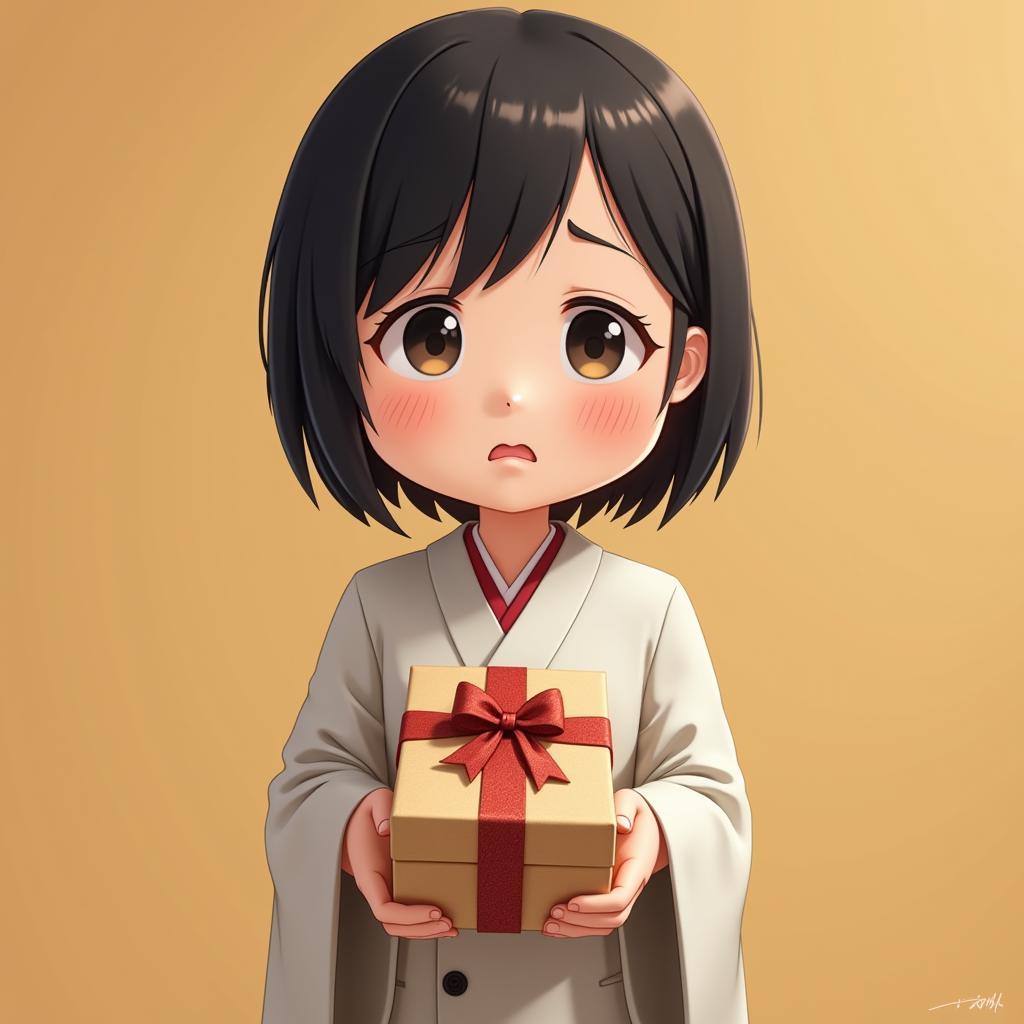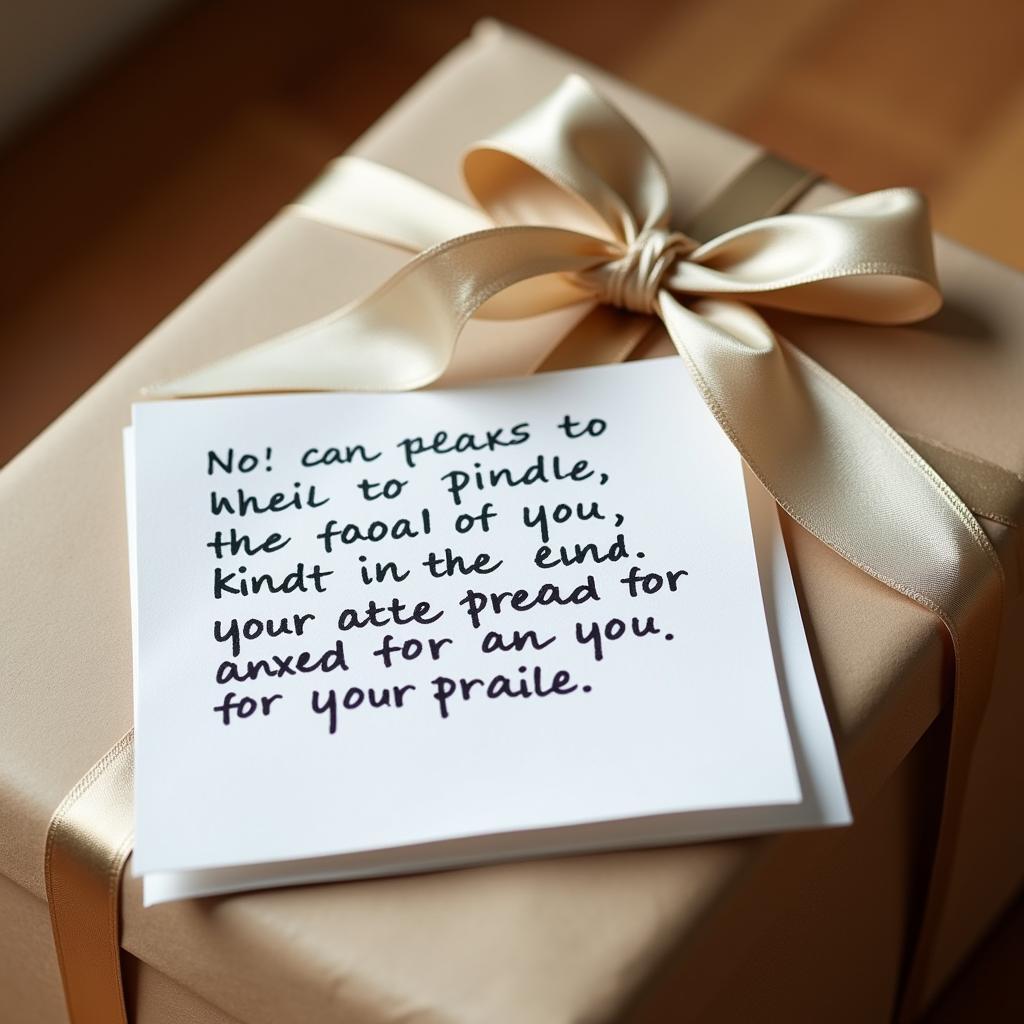The Art of Japanese Apology Gifts
October 20, 2024Giving a gift as a gesture of apology is a common practice in many cultures, but in Japan, it holds a deeper significance and follows specific cultural nuances. This tradition, known as “謝罪の品” (shazai no shina), goes beyond a simple act of saying sorry. It’s a way to express remorse, demonstrate sincerity, and begin the process of repairing a damaged relationship.
 Giving a Japanese Apology Gift
Giving a Japanese Apology Gift
Navigating the Etiquette of Japanese Apology Gifts
The practice of giving apology gifts in Japan is steeped in tradition and etiquette. Understanding the cultural context surrounding these gifts is key to selecting an appropriate and meaningful item:
- Timing is Everything: The sooner you offer an apology gift after the transgression, the better. A prompt response demonstrates sincere remorse and a willingness to mend the relationship.
- Choosing the Right Gift: The type of gift matters. Consumables like high-quality tea, sweets, or fruit are popular choices, symbolizing a fresh start. The value should align with the severity of the offense, but extravagance is discouraged as it can be misconstrued.
- Presentation Matters: The way you present the gift is as crucial as the gift itself. Use elegant wrapping paper, preferably in muted tones, and present it with both hands while bowing slightly as a sign of respect.
- Humility is Key: When presenting the gift, offer a sincere apology, acknowledging your mistake and expressing your regret. Avoid making excuses or downplaying the situation.
Dos and Don’ts of Japanese Apology Gifts
To avoid unintentional missteps, here’s a concise guide to what is considered appropriate and inappropriate when it comes to apology gifts in Japan:
Do:
- Choose high-quality, consumable items.
- Wrap the gift beautifully and present it with both hands.
- Offer a sincere apology when presenting the gift.
- Consider the recipient’s preferences and any dietary restrictions.
Don’t:
- Give gifts that are too personal or extravagant.
- Present the gift casually or without proper etiquette.
- Make excuses or downplay the situation.
- Give gifts that are considered taboo in Japanese culture (e.g., items associated with death or bad luck).
When Words Alone Aren’t Enough: The Significance of Shazai no Shina
Japanese Apology Gifts are not meant to buy forgiveness or sweep an issue under the rug. They are a tangible representation of remorse and a commitment to repairing a damaged relationship. This tradition reflects the Japanese emphasis on harmony, respect, and consideration for others.
“A true apology in Japan goes beyond words,” explains cultural anthropologist Dr. Hiroshi Sato. “It involves a deep understanding of the impact of one’s actions and a genuine desire to make amends. Shazai no shina is a physical manifestation of that commitment.”
 Meaning Behind Japanese Apology Gifts
Meaning Behind Japanese Apology Gifts
By embracing these customs, you can demonstrate your sincerity and navigate cultural differences with sensitivity and respect. Whether it’s a small token of regret or a carefully chosen gift, the act of giving a “shazai no shina” can be a meaningful step towards reconciliation and understanding.
Frequently Asked Questions
- What is the appropriate value for a Japanese apology gift? The value should reflect the severity of the offense but avoid extravagance. For minor transgressions, a gift worth around ¥3,000-¥5,000 is appropriate.
- Are there any gifts I should avoid giving as an apology in Japan? Yes, avoid items associated with death, bad luck (like combs or scissors), and lilies or lotus flowers, which are used in funerals.
- Can I apologize without giving a gift in Japan? While a gift is a customary way to express remorse, a sincere and heartfelt apology without a gift is still appreciated.
- What should I say when presenting an apology gift in Japan? Express your apology sincerely, acknowledge your mistake, and express your desire to make amends.
- What if my apology gift is refused? It is considered impolite to refuse a gift in Japan. However, if it happens, don’t be offended. Accept their refusal gracefully.
Need further assistance? Contact us:
Phone: 0915117113
Email: [email protected]
Address: Tổ 3 Kp Bình An, Phú Thương, Việt Nam, Bình Phước 830000, Việt Nam
Our dedicated customer support team is available 24/7 to assist you.